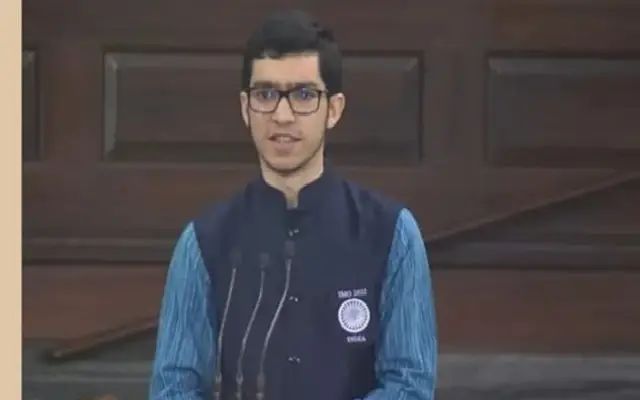Between the devil and the deep sea. That sums up the work life of medical officers in most private factories/industries across Karnataka. Designated as Factory Medical Officers, they work under intense stress and the fear of losing their job is always stalking them.
 The Factories Act makes it mandatory for all industries to appoint full-time medical practitioners with MBBS and AFIH (Associate Fellow of Industrial Health) qualification.
The Factories Act makes it mandatory for all industries to appoint full-time medical practitioners with MBBS and AFIH (Associate Fellow of Industrial Health) qualification.
As per the law, they have to conduct pre-employment medical check-up of job aspirants, periodic medical check-up of employees, and also treat workers who suffer injuries while discharging their duties. The doctor has to follow given parameters while declaring a particular candidate fit for employment and also while providing treatment to any employee.
The description of their job is quite simple. But the catch is that in case a candidate has been certified fit and if he dies while at work then in most instances the factory medical officer is shown the door.
That is what happened with Dr Arif Khan in a steel manufacturing unit in north Karnataka. He had certified a young man fit, but a week after he was employed he collapsed in his work area and died of heart attack. Dr Arif Khan lost his job as a consequence.
Consider the case of Vanita Rao, a doctor who was working in a garments manufacturing unit in Bommasandra. One day, an employee called Venkataramanappa Hiremath (49) went to her with the complaint of stomach ache. She examined him and advised him immediate admission to hospital. Two nurses took him to a hospital in the factory ambulance. At the hospital, doctors told Venkataramanappa that he should get admitted immediately and undergo a few tests without delay. But the latter decided to be treated as an out-patient. So after the doctors gave him medicines, he was shifted to his house in the factory ambulance itself. A little later, he died at home.
Within the next few hours, the garment factory was mobbed by family and friends of Venkataramanappa and a few goons of the locality. They shouted slogans against the factory medical doctor and demanded action against her. There was tension on the factory premises. Though the CCTV camera footage showed that the doctor had done her duty and had not committed any mistake, the management summoned her and what happened behind the doors nobody knows till date. She left immediately and spent several months hunting for another job.
This incident took place in Bengaluru and only the family of the doctor and employees of the factory got the whiff of it. But such incidents are very common in many other places where doctors stay on the factory campus. Such incidents are pushed under the carpet and the news does not cross the factory gates as everybody is frightened of losing their job if they share their angst with the outside world.
It is not just about losing the job, even the working conditions are quite pathetic in many factories/industries.
Darshini Bhat, a doctor in one such industry, opines that factory managements appoint doctors for ornamental purposes. They are not given basic facilities such as a table and a chair, an attender to manage the crowd of job aspirants who come for medical check-up, a nurse to assist the doctor when the candidates are being examined, and an intercom facility to talk to technicians and consultants.
Sometimes there are as many as 120 job aspirants that the doctor examines on a single day. But while doing so, she has to mind the crowd, and also ensure that the pre-employment forms she prepares after examining each candidate reaches the lab technicians who conduct suggested tests. Later, looking at the test reports, the doctor declares the candidate concerned fit or unfit for employment.
While many factories appoint doctors on contract and hire and fire them at will, there are some that treat them in a fairly better way. For instance, Dr KN Sukhi, medical officer at Raymond, Doddaballapur Road, says: “I am happy in my factory. I have worked in many others where I did not even have the freedom to suggest the needed medical tests that the employees have to undergo at regular intervals. But here the managers take my suggestions while taking decisions related to healthcare issues. Such is not the case in most other factories. In another place where I worked, doctors were not respected at all. In fact, the general manager was not at all accessible to doctors. But tailors and packers could walk into his chamber any time and discuss their problems.”
Dr M Thyagaraju, vice-president of the Association of Occupational Health Karnataka (AOHK), said: “Factory medical officers in the private sector have a limited role to play. The managements ask them to refer employees needing medical attention to hospitals and ensure that employees do not raise any objection about lack of medical care.”
He agreed that the factory medical officers in the private sector are either suspended or terminated from service whenever a death occurs on the factory premises. According to him, AOHK goes to the rescue of such doctors by talking to the managements concerned. AOHK office-bearers engage in a dialogue with the management and try to impress upon them that the death of the employee is not due to the doctor’s negligence but due to massive cardiac arrest. “Some managements are convinced and they reinstate the doctor, while others do not despite our best efforts,” he added.
Dr Thyagaraju also pointed out that while doctors in private sector face such harassment, those in government companies get to pursue higher studies and have better work environment for their career growth.
VHH Surendra, joint director of factories (medical), who goes on factory inspections, opines that most factories appoint doctors as the unions themselves ensure that required medical care is provided to workers. However, the working condition of doctors in private factories does not come under their purview. “Our job is to see if the Factories Act is implemented. By and large it is. And wherever it is not we issue a show-cause notice and file a case”.
An officer in the Labour Department of Karnataka said that in most factories across the State doctors are appointed on contract. “The department has not maintained any statistics about the number of factory medical officers working in the private and the government sector,” he said.
The official also pointed out that there are very few doctors in Karnataka with AFIH qualification that is mandatory according to the Factories Act.
PT Parameshwar Naik, Minister of State for Labour, Government of Karnataka, was not available for comment.
















